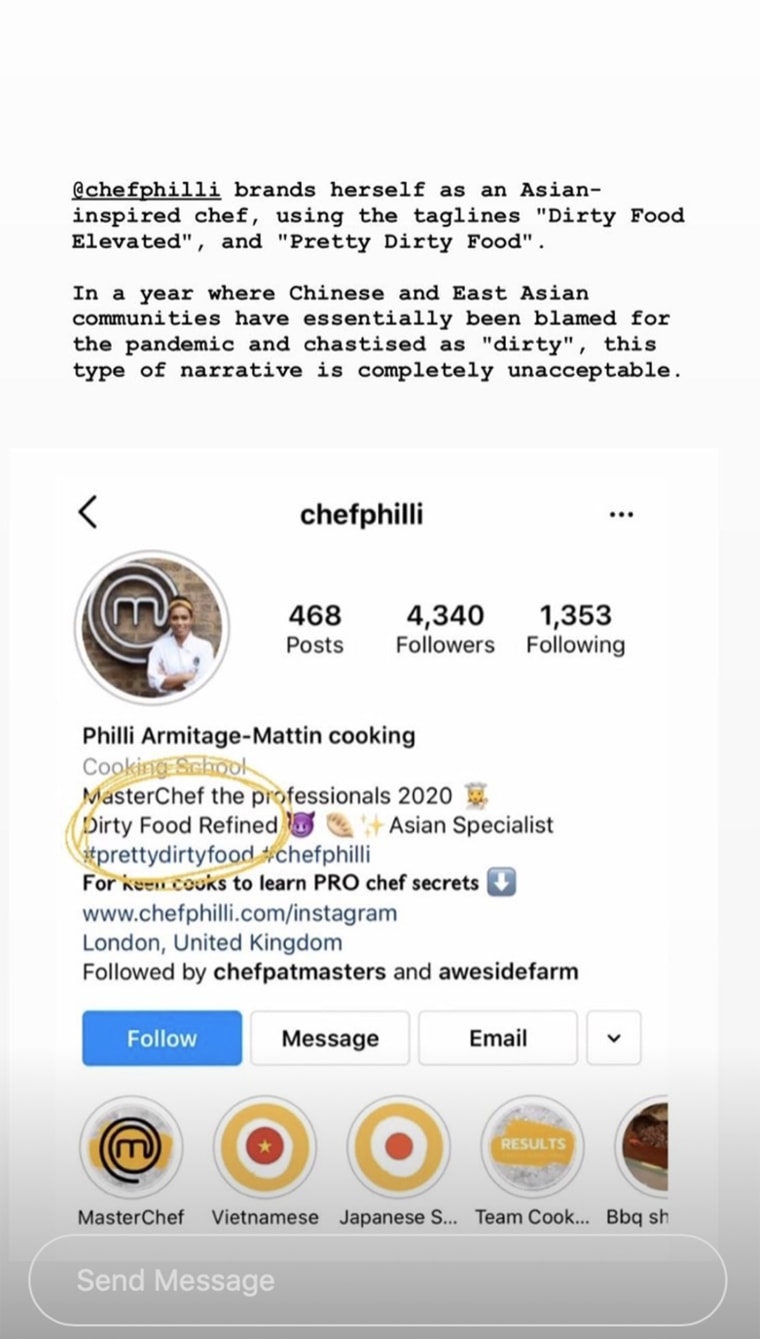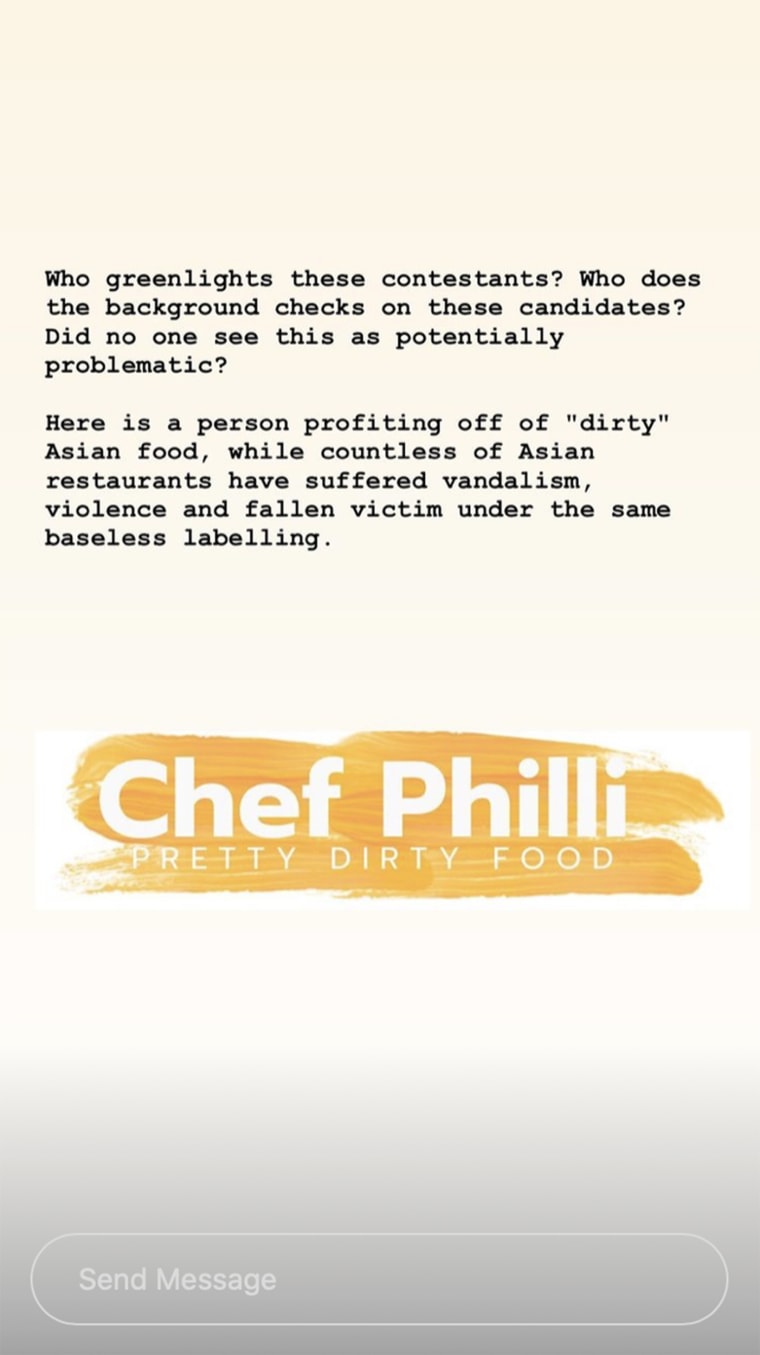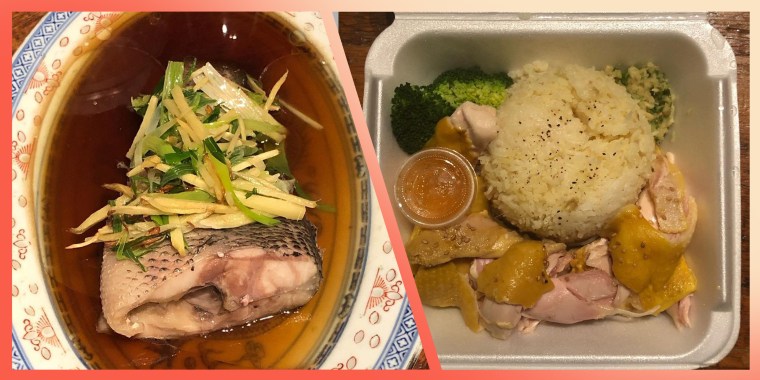"Masterchef: The Professionals" contestant Philli Armitage-Mattin, a London-based chef, is facing backlash for referring to Asian cuisines as "dirty" and issuing an apology that critics say does not acknowledge the historical stigmatization of such foods.
The controversy started with Armitage-Mattin's Instagram bio, which has since been changed. A screenshot of it includes the hashtag #prettydirtyfood and the tagline "Dirty food refined."
Clarence Kwan, creator of "Chinese Protest Recipes," a cooking zine about antiracism and Chinese food, posted a screenshot of the bio to his Instagram Stories, where he expressed his dismay.

"In a year where Chinese and East Asian communities have essentially been blamed for the pandemic and chastised as 'dirty', this type of narrative is completely unacceptable," Kwan wrote.
In another post, Kwan said that the description was also an insult to Asian restaurants who have been affected by the pandemic.
"Here is a person profiting off of 'dirty' Asian food, while countless Asian restaurants have suffered vandalism, violence and fallen victim under the same baseless labelling," he continued.

"Basically, words matter," Kwan told TODAY Food. "...This has been a weapon that's been used again Chinese immigrants since we got here almost 200 years ago. And we're seeing that manifest today as well. So when you're talking about 'dirty,' you have to understand context and how Chinese and Asian communities have been villainized through the use of food and how we eat."
Lucky Lee's, a restaurant in New York City that closed last December, came under fire for similar reasons when it opened in April 2019 and branded itself as a “healthified” Chinese American restaurant, using descriptors like "clean," "organic" and "less oil."
Armitage-Mattin issued an apology on Instagram, writing that she had "never called Asian food 'dirty' in a derogatory manner" and instead meant "indulgent street food; food that comforts you as in 'going out for a dirty burger.'"
"Far from being critical, I want to be proud and celebratory," she continued. "As a chef I only cook food I personally find interesting, delicious and that I'm passionate about which includes street food from around the world. It has never occurred to me to connect the words 'dirty' and 'Asian' in the manner that I am accused of, that has never been my intention. I'm truly sorry if this has caused any offense."
The comments on the post were split, with some defending Armitage-Mattin and others calling the statement a non-apology. Armitage-Mattin did not respond to a request for comment from TODAY.
"Is it just me or do most of the people in the comments defending her belong to one demographic, and it’s not the one she offended?" asked one person on the post.
"Even if you didn’t intend the word 'dirty' to mean 'unclean,' you have failed to acknowledge or apologize for the harm that this kind of language causes to Asian populations," wrote another. "... Your deletion of 'Asian specialist' and 'dirty food refined' from your profile only serves to show that you KNOW that you have done something wrong. This apology reeks of 'I’m sorry you misunderstood and got offended, but I’m not going to take responsibility.'"
Kwan said that the post follows a pattern of deniability and felt more like a public relations attempt than a genuine attempt to understand what had upset people.
"This non-apology, as you can see, it's very much like, 'This is how I feel, I'm sorry you feel that way," said Kwan. "Literally all people are asking for, all marginalized groups and voices are asking for, is to be heard. When people say 'I'm hurt,' the response shouldn't be 'I'm sorry you're hurt.' That's not a dialogue. Especially in this year when there's been so much discussion about unity."

